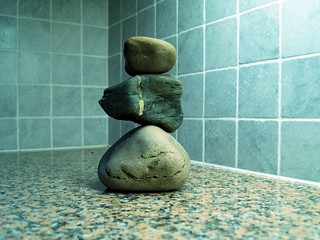When stone is polished, the pores are tighter and restrict the capability of liquids to enter. With honed materials, liquids may enter a few of the less absorbent rocks more readily and consequently does really need any kind of an impregnating sealer.
Honed tiles have their benefits and are generally found in bathrooms since they offer more traction than polished marble. Honed marble can be more resistant to scratching than polished. Since use of marble in your bathrooms implies lots of moisture, preserving the integrity of your sealer for honed stone is a necessary precaution.

Using an Impregnating Sealer with Honed or Polished Marble
Using an impregnating sealer won't protect marble against some of these awful water rings and water spots. They're not technically stains, irrespective of how poorly they look, but you still want them gone. Perhaps it's corrosion or rust. The cause is really a chemical reaction between the calcium in the stone or marble and the acid in the product that caused it to etch.
Any marble sealer that's worth buying must last you at least 5-7 years, even if you have the most-porous of marble and granite. If any marble surface of the stone is corroded, no amount of sealer will bring the colour right back: it needs to be resurfaced and re-polished. That's why it's important to try and make an effort and use products that do not require frequent repeat applications. Utilize the best sealer to assure longevity of the natural stone and it'll make your preservation easier.


